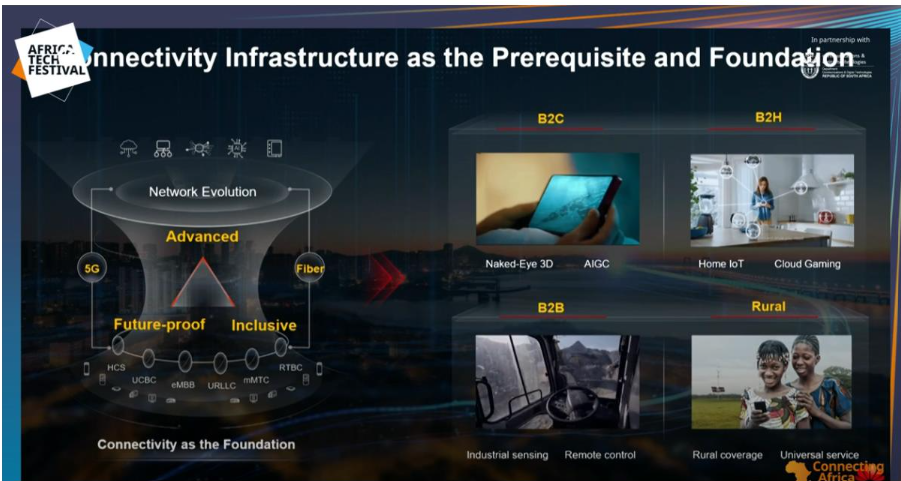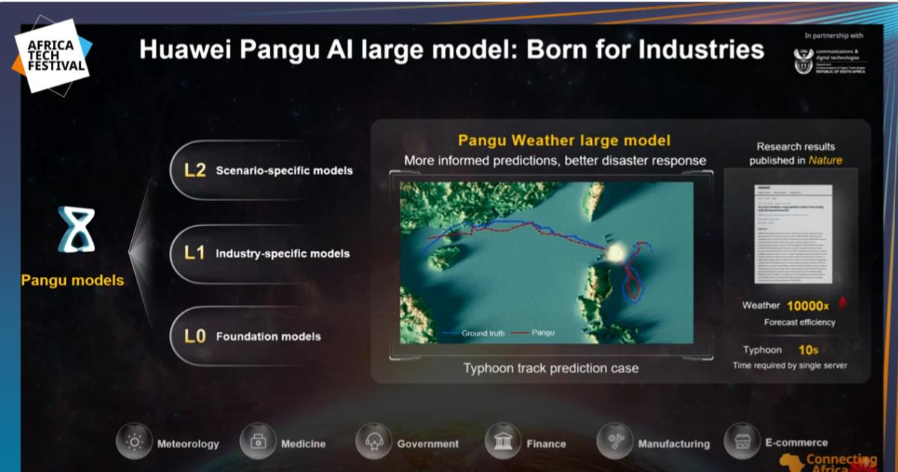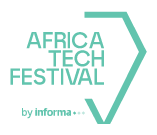
Huawei's Vision for a Digital and Sustainable Africa at Africa Tech Festival
Leo Chen, President of the Sub-Sahara Africa Region at Huawei, talks through the tech giant’s approach to fostering digital and energy revolutions in Africa. Explore more from Africa Tech Festival 2023 here.
Experience talks like this one and be part of unrivalled networking opportunities this year by registering now for our 2024 show.
Huawei Outlines 8 Sustainability Initiatives
Note: The below article has been created from a transcript of the session video.
Each year we come to Cape Town to discuss the latest advances in the ICT industry. Recent innovations are part of two major trends: the digital revolution and the energy revolution.
Technologies like 5G, cloud, and AI, along with efficient energy sources like solar, will boost the digital economy and productivity, leading us into an intelligent world.
1. A New Phase of Digitalisation
Nearly 30 years ago, Nicolas Nancour-Ponti used a metaphor "from atoms into bits" for digitalization. Today, digitalization has entered a new phase, transforming the production process in all industries for greater productivity.
Today, we will discuss how Africa can ride this new wave to leapfrog development in the digital economy.

2. Connected Infrastructure
Africa's first priority must be to accelerate the development of connected infrastructure. In the future, more people, things, and applications will connect, resulting in a huge increase in data. We need a more secure, reliable, and leading-edge network for digitalization.

3. Key Features of Future Networks
First, networks should be more advanced. Africa can leap ahead by using the latest technology to build high-performance mobile networks, evolving into an ultra-broadband network with 4G and 5G collaboration. Future networks will support 10 Gbps downlink and 1 Gbps uplink, enabling scenarios like naked-eye 3D for an immersive experience.
Second, networks should be more future-proof, supporting future application scenarios. The high bandwidth, low latency, and wide connection of 5G have been widely used in industry digitalization. In South Africa, the first 5G combination in the education sector supports AR and VR testing. Smart Home solutions deliver gigabit user experiences, supporting applications like 4K and 8K streaming.
Third, networks should be more inclusive and accessible. Many remote areas still lack broadband access. Our cost-effective wireless rural star solution can provide broadband access and digital services, bridging the digital gap and enabling inclusive development.
4. Cloud Migration and Innovation
With the rise of digitalisation, both government and commercial organizations require massive data processing and computing. Instead of building their own IT systems, cloud migration has become the clear choice. By 2026, 75% of organizations will adopt cloud due to its low cost, high agility, and flexibility.
African countries should establish national cloud data centres to provide computing resources to the government, public, and SMEs, driving the innovation ecosystem. Government clouds can improve operational efficiency and provide citizens with one-stop innovative services.

5. Cloud and AI Innovations
Reliable and stable databases are key to enterprise digitalization. Huawei Cloud's cloud arts platform offers local developers’ efficient tools to improve their software development capabilities, providing clients with innovative and customized solutions.
AI is becoming more accessible through cloud services. Huawei Cloud, as a fast-growing cloud service provider, is equipped with the AI Large Model, Pangu, which can complete a 24-hour global weather forecast in just 1.4 seconds, 100 times faster than traditional methods. This technology can be used in Africa for agriculture, disaster prevention, and improving livelihoods.

6. Decarbonisation
As carbon neutrality becomes a global goal, the ICT industry can help reduce global carbon emissions by 20%, ten times its own emissions. Digital solutions can make green energy production more efficient. Huawei's smart solutions, integrating electronic and digital technologies, can drive the transformation to clean energy.

7. Clean Energy Projects
In South Africa, the SCATEC project, Africa's largest ground PV plant, provides clean energy to over 120,000 households. Huawei's solution improves energy yield by over 2% and O&M efficiency by more than 40%. Huawei's digital solutions also help carriers cut their carbon emissions, saving around $40 million annually across more than 10 African countries.
8. Talent Development
The driving force behind all innovation is people. Huawei focuses on digital talent cultivation, having trained 100,000 digital talents in sub-Saharan Africa in the past five years. By 2026, we plan to train another 100,000. We support localized and joint innovation, exemplified by the success of M-PESA and mobile money innovation.
Technological progress is a powerful force that naturally improves society's well-being. Working in the technology sector, we have a responsibility and motivation to accelerate digital Africa, creating a prosperous and sustainable future. We are ready to work with all parties to achieve this mission. Thank you very much.
